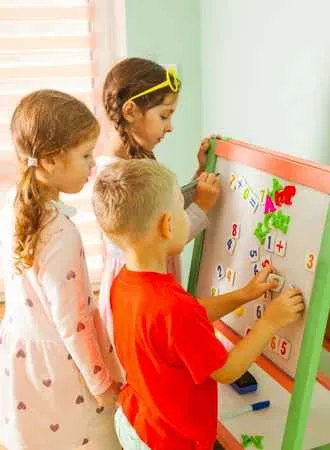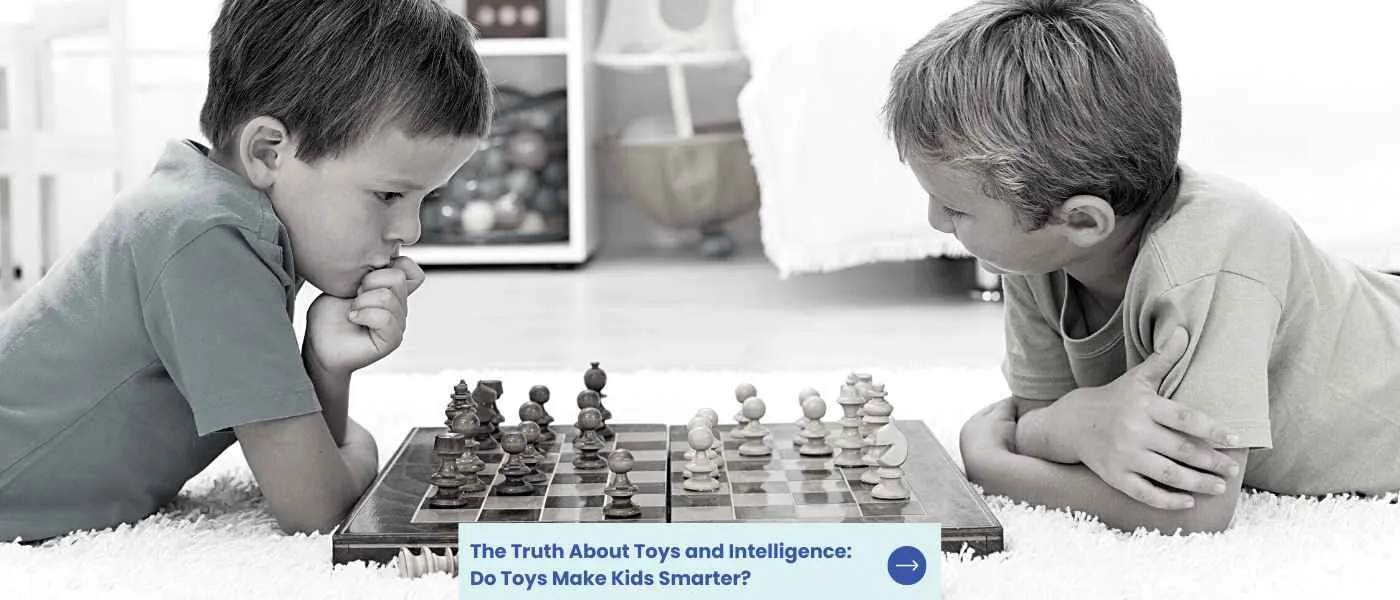Most parents are on a never-ending quest to give their little ones the best possible start in life. They want them to be happy, healthy, and successful individuals. And as their kids grow, so does their desire to support their intellectual development. But with the endless stream of “smart” toys and gadgets hitting the shelves, it’s hard not to feel overwhelmed and wonder – do these toys really deliver on their promises?
Well, we’re here to help you uncover the truth about toys and intelligence. Whether you’re a rookie parent looking for guidance or a seasoned pro eager to stay up-to-date, this blog post will delve into the science behind the claim and shed light on this age-old debate. So, buckle up and get ready to discover the impact of toys on your child’s intelligence.
Key Takeaways on Does an Educational Toy Make a Child Smarter
- While toys and play can be beneficial for cognitive development, they are not a magic solution for making young children smarter. It’s important to choose toys and play activities that promote skill-building and provide a nurturing environment that help kids develop.
- Parents can support their child’s cognitive development by encouraging play, reading to them, providing opportunities for socialization, limiting screen time and acting as a positive role model.
- Quality playtime requires both quantity and quality of the play experiences. Parents should create a play-friendly environment and provide stimulating toys or activities that promote exploration and discovery.
Do Toys Actually Make Children Smarter?
The answer to this question is not a simple yes or no. While some toys and play activities can promote cognitive development, it’s important to recognize that intelligence is a complex and multifaceted concept that cannot be solely attributed to toys.
Research suggests that certain types of play can be beneficial for cognitive development, such as imaginative play, construction play, and games that involve problem-solving and critical thinking. These types of play can help children develop skills such as spatial reasoning, creativity, and decision-making, which can have long-term benefits for academic and career success.
However, it’s important to note that not all toys are created equal. Some toys are marketed as “smart” or “educational” but may not actually promote cognitive development. Additionally, the quality and quantity of playtime can also impact its effectiveness in promoting cognitive development.
What Are Some Ways Parents Can Support Their Child’s Cognitive Development?
There are many ways that parents can support their child’s cognitive development, and it’s important to remember that every child is unique and may have different needs. Here are some general tips that can help:
Encourage play
Play is an essential part of a child’s cognitive development. It helps them learn about the world around them, develop their imagination and creativity, and build problem-solving skills. Provide your child with a variety of toys and activities that promote exploration and discovery.
Read to your child
Reading to your child is one of the best ways to promote language development, literacy skills, and cognitive growth. Make it a daily habit to read books together, even if it’s just for a few minutes.
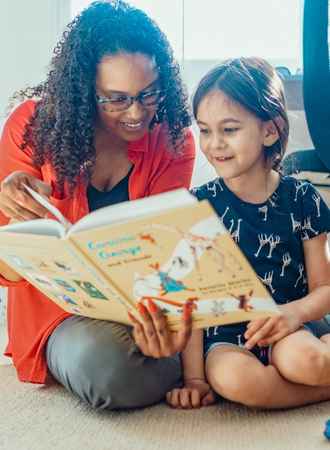
Socialization is important for cognitive development, as it helps children learn how to interact with others, develop empathy, and build communication skills. Arrange playdates or enroll your child in group activities such as sports or music lessons.
Limit screen time
While technology can be a useful tool for learning, excessive screen time can be detrimental to a child’s cognitive development. Set limits on screen time and encourage your child to engage in other activities such as outdoor play, reading, or imaginative play.
Be a positive role model
Children learn by observing and imitating their caregivers. Model positive behaviors such as problem-solving, critical thinking, and curiosity, and encourage your child to ask questions and explore their interests.
Remember, supporting your child’s cognitive development is an ongoing process that requires patience, consistency, and a willingness to adapt to your child’s changing needs. By providing a nurturing environment that encourages exploration, play, and learning, you can help your child reach their full potential.
Parents can enhance their child’s cognitive and social-emotional growth by providing them with appropriate early childhood development resources, such as toys that promote interactive play and learning.

How Can You Ensure That Their Children Are Getting Enough Quality Playtime?
Ensuring that children are getting enough quality playtime is essential for their overall development. Here are some tips to help promote quality playtime:
- Set aside dedicated playtime. It’s important to make sure that children have dedicated playtime each day, without distractions or interruptions. This can be a time when you play with your children, or when big kids can play independently.
- Create a play-friendly environment. Make sure that your home is set up to encourage play. Provide a variety of toys and materials that promote exploration and creativity, and make sure that the play area is safe and comfortable.
- Follow your child’s lead. Children often have their own ideas about what they want to play and how they want to play. Follow their lead and let them take charge of the playtime, while offering guidance and support as needed.
- Encourage open-ended play. Open-ended and pretend play activities, such as imaginative play and construction play, promote creativity and and helps a child develop problem-solving skills. Provide materials that can be used in different ways and encourage children to use their imaginations.
- Play together. Playing with your child can be a great way to promote quality playtime and strengthen your relationship. Join in on their play activities and offer encouragement and support.
Remember, quality playtime is not just about the amount of time spent playing, but also about the quality of the play experiences. By providing a nurturing environment that encourages exploration and creativity, you can help their children develop the skills they need to succeed in all aspects of their lives.
Open-Ended Play
Open-ended play is an important part of a child’s development. It encourages problem solving, social interaction, and self-expression in ways that traditional toys cannot. With open-ended play, the possibilities are endless!
Problem Solving
Open-ended play gives kids the opportunity to explore different solutions to problems and come up with creative ideas on their own. For example, when presented with a set of toy blocks, Lego sets or other building materials, kids can use their imagination to create whatever they want – from towers and castles to cars and robots. This type of problem solving helps develop critical thinking skills that will be beneficial later in life.
Cause and effect toys help encourage your little one to think critically and work out causal relationships.
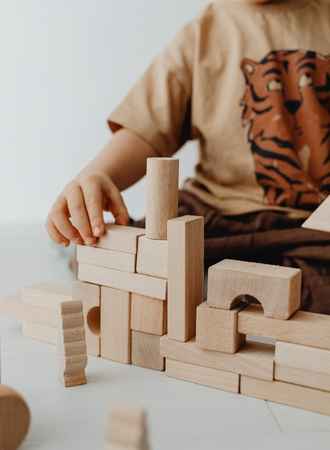
Social Interaction
Open-ended play also allows for more meaningful interactions between kids as they work together to build something or solve a problem. They learn how to collaborate with each other by taking turns and listening carefully while discussing ideas about what they should do next. This type of social interaction helps foster healthy relationships between peers which is essential for future success in school and beyond.
Self Expression
Open-ended play provides an outlet for self expression where kids can express themselves without judgement or criticism from others. Whether it’s through art projects like painting or sculpting clay figures or role playing games like pretending to be superheroes or princesses, open ended activities give kids the freedom to express themselves however they choose without fear of being judged by others.
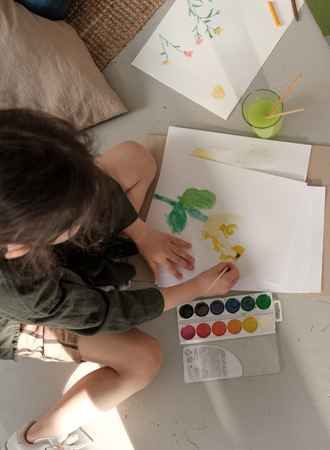
Gross Motor Skills
Open-ended toys are a great way to encourage physical activity. They allow for creative play and encourage kids to use their bodies in different ways. Examples of open-ended toys include blocks, play dough, and balls, which can be used to create and explore in a variety of ways such as jumping, balancing and to walk around.
Choosing the Right Toys That Encourage Learning
When it comes to choosing the right toys for your child, there are a few key things to consider.
Age Appropriate Toys
It is important to choose age-appropriate toys for your child’s safety as well as their enjoyment. Babies will benefit from sensory play items such as rattles or soft blocks while toddlers may enjoy shape sorters or pull-along animals.
For preschoolers, puzzles, board games and construction sets are great options since they help develop problem solving skills and hand-eye coordination. Older kids may prefer more complex games like chess or card games which require strategy and focus while still being fun!
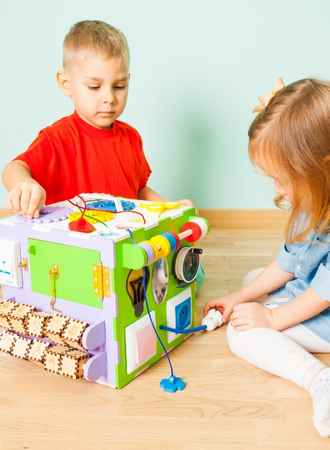
Educational Value
Toys can also be used to teach basic concepts such as counting, colors, shapes, letters etc., depending on the age of the child. Look for interactive toys that allow them to explore these topics in an engaging way through playtime activities like sorting objects by color or counting out pieces when constructing something with building blocks. This type of learning helps kids understand new concepts better than just memorizing facts from books alone!
Variety of Activities
Look for toys that offer different types of activities so your little one does not get bored too quickly with any one toy set or game. Puzzles come in many varieties, some having multiple levels of difficulty, others featuring different themes and some even including sound effects when pieces are put together correctly.
Building sets often come with instructions but also allow kids to use their imagination when creating something unique each time they play with it; this encourages exploration which is beneficial at any age.
FAQs in Relation to Do Educational Toys Make Children Smarter
Do toys help brain development?
Yes, toys can help brain development. Research has shown that play is essential for teaching kids different concepts and help them understand how the world works. Through play, kids learn to explore their environment and develop various skills.
A child’s mind is continuously expanding and toys provide a safe way for kids to experiment with the world around them and practice new skills in a fun and engaging way. Toys also give you an opportunity to interact with your child in meaningful ways which further enhances learning opportunities for both you and your child.
What makes a child more intelligent?
Research suggests that a combination of factors contribute to a child’s intelligence, including genetics, nutrition, and environment.
- A stimulating home environment with opportunities for learning and exploration can help foster hands on or manipulative play and cognitive development in kids.
- Engage in one-on-one time with your child and talk to them about certain toys and asked them about things they’re interested in. Parent-child communication can strengthen the bond between parent and kid and makes kids feel loved and cherished.
- Encouraging cooperative play and playtime with open-ended toys such as wooden blocks or puzzles helps develop problem solving skills. Other toys and tools that teach math and boost a child’s self-esteem is recommended.
- Reading aloud to kids from a young age has been linked to higher academic achievement later on in life.
- Providing nutritious meals rich in essential vitamins and minerals is important for brain development during the formative years of childhood.
Do toys help kids learn?
Through play and exploration, kids are able to develop their physical, cognitive, social-emotional and language skills. Toys provide an opportunity for creative expression as well as a way to practice problem solving skills. They also encourage the development of fine motor skills and hand-eye coordination.
Furthermore, toys allow kids to explore different concepts such as learning numbers, basic math or colors in a fun and engaging way that encourages learning through experimentation.
Ultimately, toys can be a great tool for learning and development.
